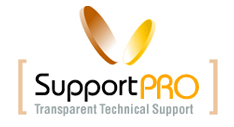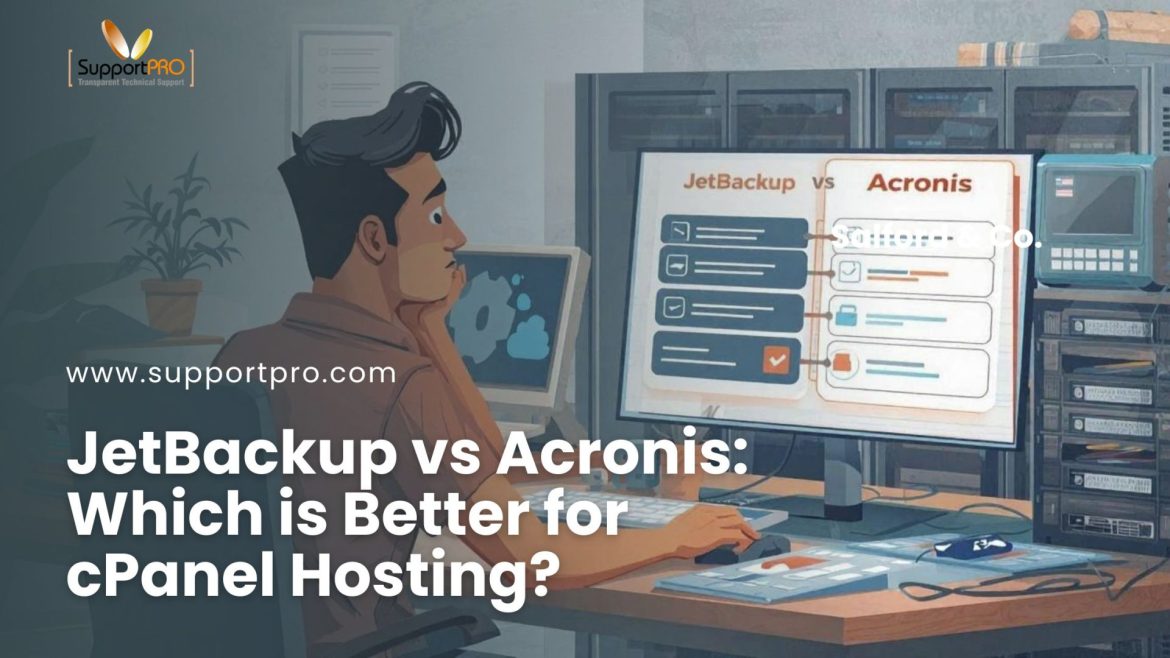If you’ve ever run a web hosting server, you know there’s one thing that can ruin your day faster than anything else — losing data. A failed update, a hacked account, or even a minor misconfiguration can wipe out hours of work. That’s why backups aren’t just an option; they’re your safety net.
When it comes to the best software for cPanel backup solutions, two names keep popping up: JetBackup and Acronis Cyber Protect. Both are strong contenders, but they’re built for slightly different worlds. I’ve worked with both over the years, and here’s how they actually perform in day-to-day hosting life.
JetBackup – Made for the Hosting Crowd
If your life revolves around WHM and cPanel dashboards, JetBackup feels like home. It’s clearly designed with hosting providers in mind. You can schedule backups, set retention limits, restore accounts, or even let your clients restore their own data without opening a single support ticket.
What makes JetBackup a top server backup tool for hosting providers is its flexibility. You can back up locally, to remote servers, or to the cloud — Amazon S3, Backblaze B2, Wasabi, Google Drive, pretty much anything that supports a connection.
It’s lightweight too. It doesn’t hog resources or slow down the server, which is a huge plus if you’re managing shared hosting environments. Once configured, JetBackup quietly runs background backups, keeping your cPanel and WHM backups secure and reliable.
Acronis Cyber Protect – for Bigger Systems
Acronis Cyber Protect, on the other hand, feels like it was made for companies with a lot more moving parts. It’s not just a backup system — it’s an entire data protection and cybersecurity platform rolled into one.
You can use it to back up everything from cPanel servers to Windows systems, cloud VMs, and hybrid setups. It’s packed with advanced tools, including AI-powered malware and ransomware protection, so your backups stay safe even if your main system is hit by an attack.
That said, Acronis is heavier. It needs more resources and costs more to run. It’s not overkill, but it’s clearly aimed at enterprise-level backup environments — the kind of setups with mixed operating systems and multiple teams relying on centralized recovery.
How They Really Compare
If you strip away the marketing terms, the difference between JetBackup and Acronis cPanel backup solutions becomes clear once you’ve actually used them.
When it comes to how they handle backups, JetBackup cPanel backup keeps things simple and direct. It’s great for incremental and differential backups at the account level. That means if one user loses their emails or database, you can restore just that account without touching the rest of the server.
Acronis, meanwhile, takes a bigger picture approach. It provides Acronis full-system image backups, allowing you to restore an entire machine — including the operating system, files, and configurations, everything. It’s the kind of setup you want if you’re managing a data center or a private cloud.
For cPanel server disaster recovery, both get the job done, but in different ways. JetBackup uses the Relax and Recover (ReaR) tool for Bare Metal Restores, which lets you rebuild a whole cPanel server from scratch, including all accounts. Acronis also supports full-image recovery, and it’s more flexible across different operating systems and hardware, giving it an edge for multi-OS infrastructures.
In terms of backup security, Acronis wins easily. JetBackup focuses purely on backing up and restoring data — and it’s great at that — but it doesn’t include malware protection. Acronis, however, offers AI-based ransomware and virus protection that actively scans backups and prevents infected files from being restored later.
And then there’s pricing. JetBackup is simply more affordable. It’s priced to make sense for hosting providers that manage dozens or hundreds of accounts. Acronis, on the other hand, comes with a premium price tag, and while it’s fair for what it offers, it’s not something every host will find practical and reasonable.
Which One Makes More Sense for You?
If your business runs primarily on cPanel and WHM, then JetBackup is almost always the better fit. It integrates naturally, doesn’t place much load on your server, and lets you customize where and how your backups are stored.
You’ll want to choose JetBackup if:
- You’re running shared or reseller hosting.
- You want quick account-level restores.
- You need flexible storage options.
- You prefer something lightweight and cost-effective.
But if you’re managing a more complex infrastructure — say, multiple OS types, virtual machines, or cloud servers — then Acronis Cyber Protect makes more sense. It’s not just a backup system; it’s a complete security and recovery solution. The built-in ransomware defense is a bonus if you’re serious about keeping data locked down.
Final Thoughts
Both tools are great — they serve different purposes. JetBackup is what most hosting providers should be running. It’s simple, affordable, reliable, and made for cPanel environments. It focuses on the essentials and does them really well.
Acronis Cyber Protect, on the other hand, belongs in larger, mixed environments where the stakes (and budgets) are higher. It gives you end-to-end protection but also expects more from your hardware — and your wallet.
The bottom line?
- If you’re running standard cPanel hosting, go with JetBackup.
- If you’re managing enterprise-grade systems or want cybersecurity baked right in, Acronis is worth a look.
Whichever route you take, don’t just “set it and forget it.” Test your backups often. Make sure they restore cleanly. Because when something does go wrong, the only thing that matters is how fast you can bring everything back.
And the good news? You don’t have to risk data loss for another day.
Let SupportPRO handle setup, monitoring, testing, and disaster recovery — so you never lose a single file again. You get peace of mind, zero downtime stress, and a fully optimized backup strategy.
Partner with SupportPRO for 24/7 proactive cloud support that keeps your business secure, scalable, and ahead of the curve.




